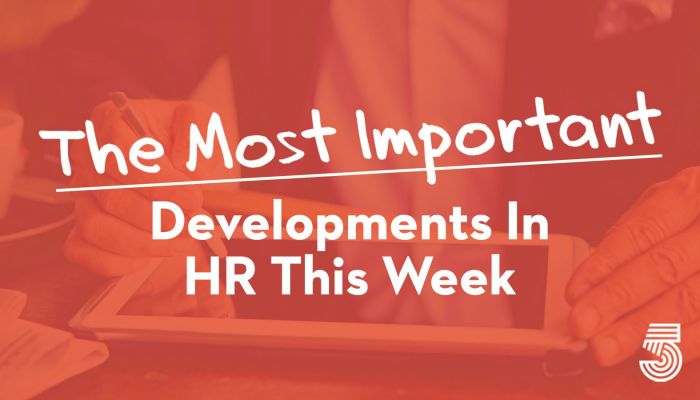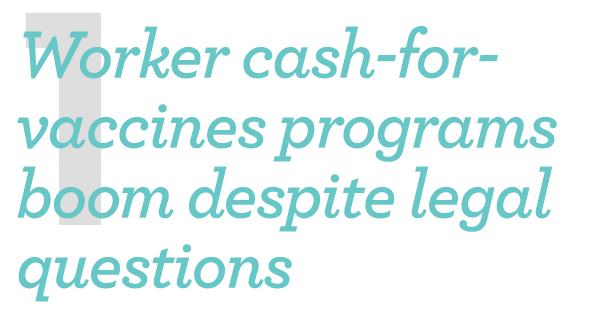
One of the largest hospital systems in Texas is offering $500 “hope bonuses” to its 26,000 workers to get inoculated against COVID-19, joining businesses nationwide betting that they can sway vaccine-reluctant employees with incentives, and that their strategy passes legal muster. But these companies are, in fact, gambling on a murky legal question, according to employment attorneys. The issue is quickly coming to a head as vaccines become available to workers outside of first-responders and teachers, and workplaces hit hard by the pandemic see an inoculated workforce as a means to get back on their feet. One question is whether incentives could be deemed as so enticing as to be coercive, violating federal anti-discrimination law. Another is whether providing bonuses is a form of discrimination against workers who can’t get vaccinated for medical or other reasons. Bloomberg Law
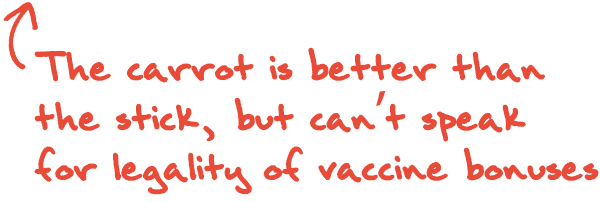
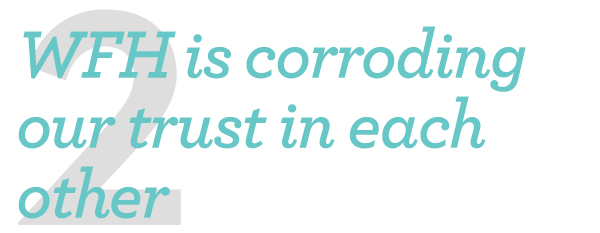
About a third of the employees of a regional bank have returned to working onsite, and the president holds a weekly all-staff town hall meeting by videoconference. Employees are encouraged to submit anonymous questions for him or other senior leaders to answer. For the past six weeks, an increasing number of people have asked, “How do we know if the people who are still working from home are actually working?” Some employees have even suggested specific technology-based monitoring approaches to track remote workers’ onscreen time and activities. The crisis of trust this bank is facing is increasingly common as the strains of remote working wear down company culture and people’s goodwill. Early in the pandemic, stories of organizational heroics — like companies repurposing laptops en masse overnight to equip employees’ homes — abounded. And for a while, people gave each other the benefit of the doubt and didn’t mind making compromises like allowing the occasional deadline to slip so that people could take care of homeschooling or other new demands. HBR
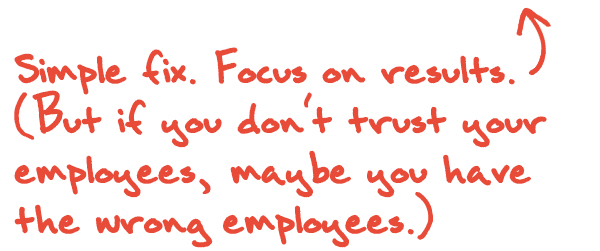
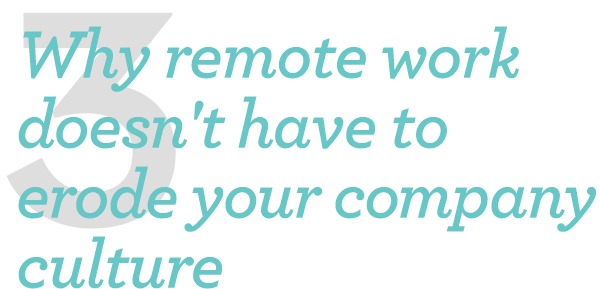
The pandemic pushed many organizations to become fully remote, and the experience has been better than many imagined. As a result, a hybrid working model that embraces the best of both remote and office-based work awaits many workers and companies on the other side of the crisis. Adapting to this new working model might seem straightforward in theory, but it will prove more nuanced in practice, especially when it comes to organizational culture. How can they redefine company culture to match the new rhythms that emerge when some employees are in the office and others are working from anywhere? Cultural beliefs and norms are still being created and reinforced, but they’re not being guided by systems and routines that were previously established in the office. They’re more open to change and subject to influence from new, non-work factors present in employees’ day-to-day lives. SHRM


Eli Lilly & Co. said it won’t try to claw back past pay from newly departed finance chief Joshua Smiley, but moved to take away his 2020 bonus and other incentive compensation following years of rule tightening around executive conduct and recuperation of funds at the drugmaker. Indianapolis-based Eli Lilly, known for drugs that treat diabetes, cancer, and other diseases, Tuesday said Mr. Smiley resigned following allegations of an inappropriate personal relationship with an employee. The company said it recently launched an internal investigation that revealed consensual though inappropriate personal communications between Mr. Smiley and certain employees. WSJ
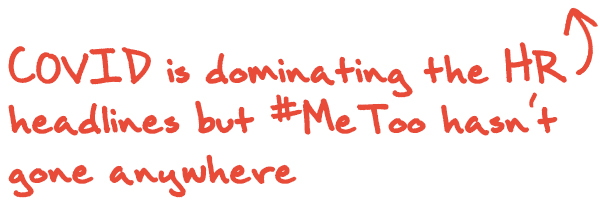
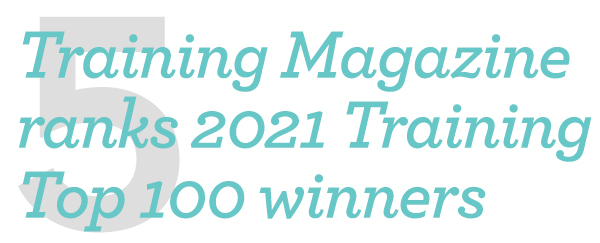
2021 marks the 21st year Training magazine has recognized organizations that provide best-in-class employee training and development. This year, financial services company United Wholesale Mortgage earned its first #1 win, followed by MasTec Utility Services (#2); Haskell (#3); C&A Industries, a Medical Solutions Company (#4); and Rosendin (#5). Some 16 new companies broke into the Training Top 100 (newly rebranded from the Training Top 125 as part of Training’s overall editorial refresh) this year. The majority of the companies are in the finance/banking, health/medical services, business services, and construction industries. Training







